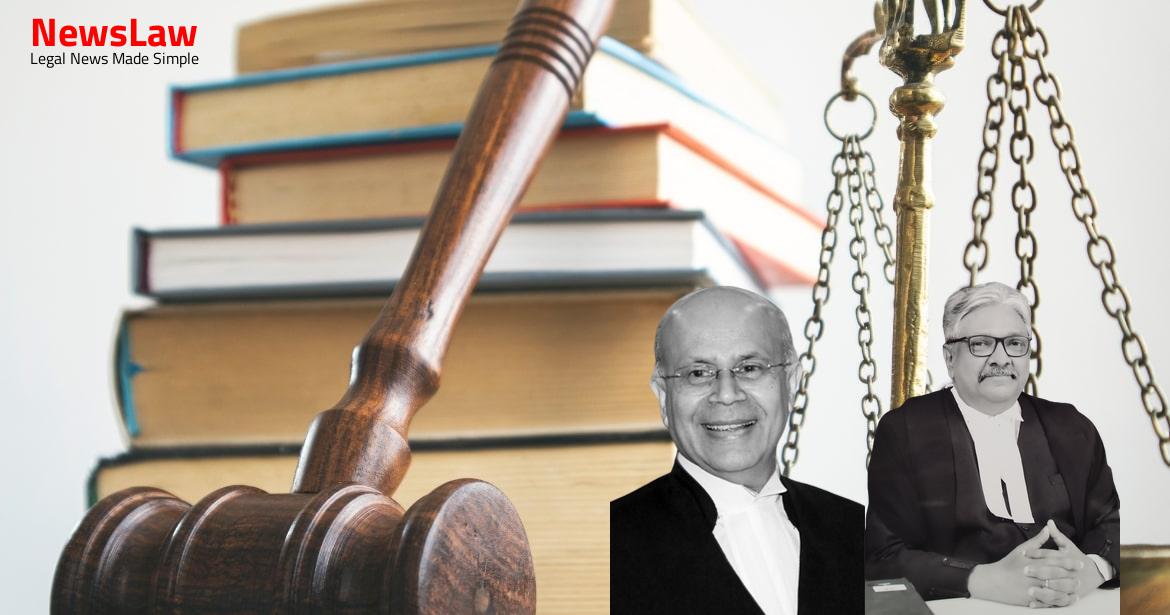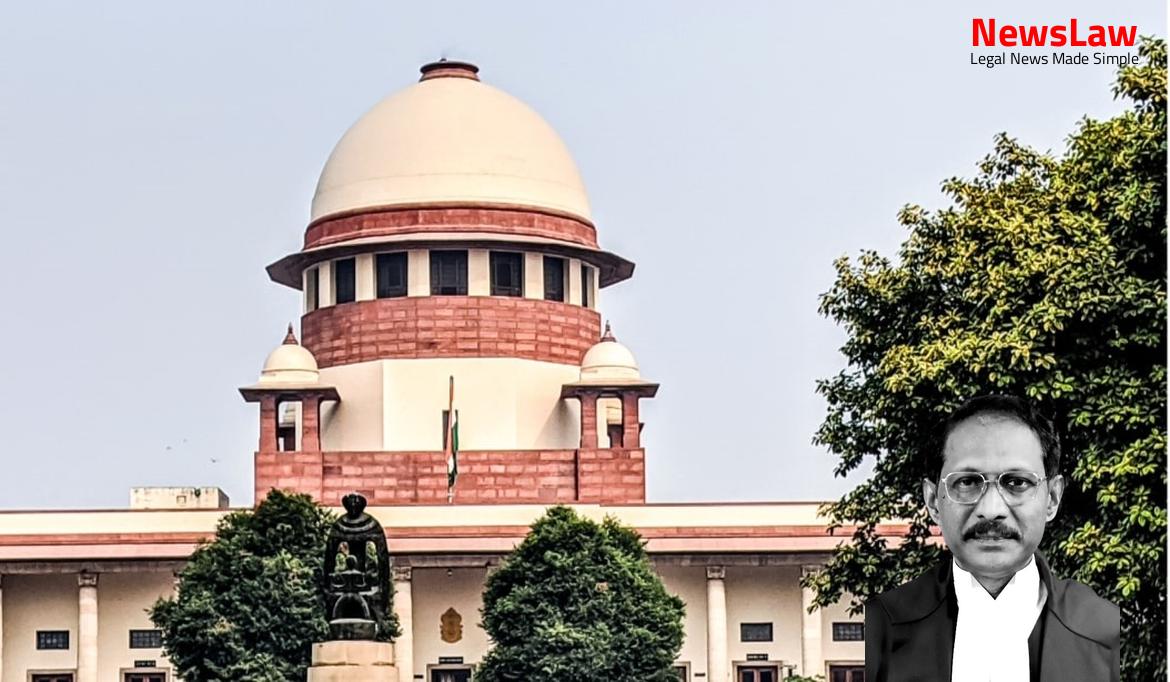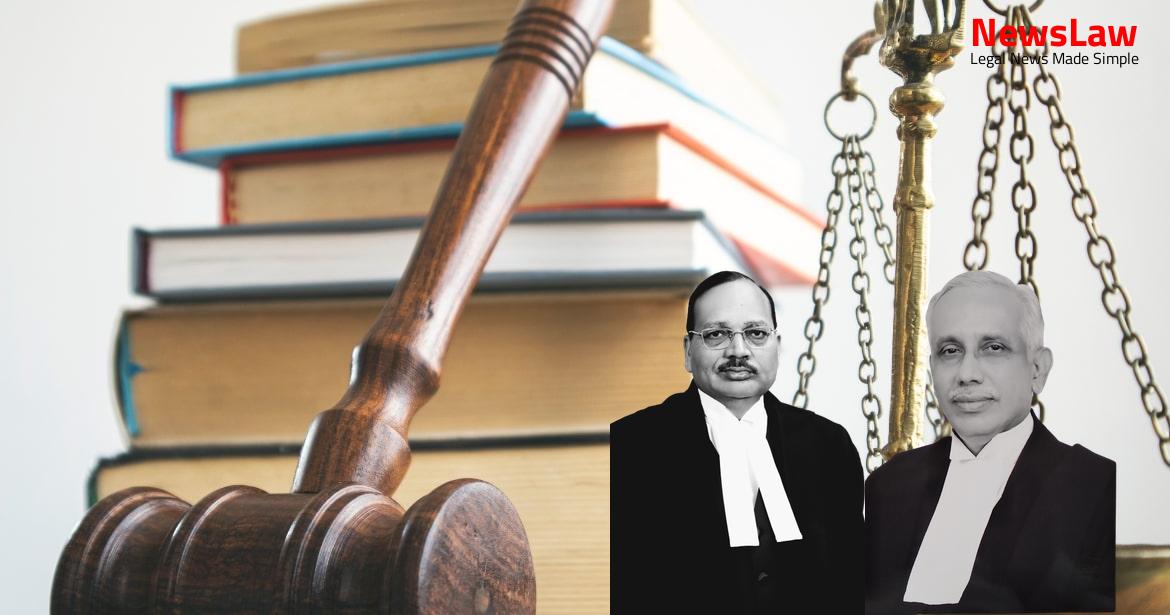Delve into a pivotal legal case where the court’s meticulous analysis of circumstantial evidence in a poisoning case led to the acquittal of the accused. The judgment underscores the critical need to establish guilt beyond reasonable doubt, highlighting key principles that shape criminal convictions based on the chain of evidence. Stay tuned to learn more about this landmark ruling reshaping legal standards in criminal law.
Facts
- The High Court, in its judgment dated 29.10.2009, upheld the Trial Court’s decision and dismissed the appellant’s appeal.
- The appellant was convicted under Section 302 of the Indian Penal Code and sentenced to life imprisonment along with a fine.
- The First Information Report was lodged by Joginder Singh (PW 1) on 18 September, 2000, regarding the murder of his wife.
- The prosecution story implicated the appellant in the murder by adding poison to milk supplied to the informant’s son.
- Both the Trial Court and the High Court found the chain of circumstances complete to establish the appellant’s guilt.
- The courts acquitted the appellant’s wife, Sheela, due to lack of conclusive evidence against her.
- The appellant did not lead any oral evidence in defense but filed a document (Ex-D1) which was a copy of the Civil Court order.
- Samples of milk, utensils, and viscera were sent for chemical examination, leading to the present appeal.
- Investigating Officer inspected the place of occurrence, prepared a site plan (Ex-PK), and collected samples of milk for analysis.
- The dead body was sent for post-mortem examination, and various witnesses including doctors and police officers were examined during the trial.
- Chemical analysis revealed the presence of organophosphorus in the samples, indicating poisoning.
- The appellant was known to the complainant and had borrowed a significant amount of money from them, creating a possible motive for the crime.
- Accused claimed innocence, stating they were falsely implicated due to financial motives.
- Court proceedings involved testimonies, cross-examinations, and submission of reports from the laboratory indicating the presence of poisonous substances in the deceased’s body.
Also Read: Balancing Private Grievances and Public Interests
Analysis
- The Chemical Examiner reports raised doubts about the handling and sealing of the samples.
- The presence of organophosphorus in the milk and viscera was a key point in the case.
- Concerns were raised about the time gaps between crucial events during the investigation.
- The lack of specific signs of poisoning during the autopsy was highlighted.
- The possibility of tampering with the samples was not ruled out, casting doubt on the evidence.
- Issues with the evidence chain and missing links were noted in the analysis.
- The motive of the appellant, involving a loan and pronote, was questioned due to lack of concrete proof.
- The pungent smell of organophosphorus, if present, should have been more noticeable.
- The judgment emphasized on the importance of establishing guilt beyond reasonable doubt in a circumstantial evidence case.
- The Court considered various inconsistencies and gaps in the evidence presented.
- In cases of poisoning, the court must determine four important circumstances to justify a conviction: clear motive, death by poison, accused’s possession of poison, and opportunity to administer poison.
- The principles in the case of Sharad Birdichand Sarda have been consistently relied upon in subsequent decisions.
- In cases of circumstantial evidence, the five golden principles as laid down by the court in Sharad Birdhichand Sarda v. State of Maharashtra must be followed.
- The circumstances in circumstantial evidence cases must be fully established, consistent only with guilt, of a conclusive nature, exclude every other hypothesis, and form a complete chain of evidence.
- The mental distance between ‘may be’ and ‘must be’ guilty is significant in determining guilt in criminal cases based on circumstantial evidence.
- Prosecution has not established the charge beyond reasonable doubt under Section 302 of IPC.
- The overall evidence on record does not support a conviction.
- The prosecution has failed to prove the guilt of the accused.
Also Read: Quashing of Criminal Proceedings Based on Insufficient Allegations
Decision
- The appellant is entitled to the benefit of the doubt.
- The appeal has been allowed, setting aside the judgments of the High Court and the Trial Court.
- The appellant has been acquitted of the charges.
- The bail bond of the appellant has been cancelled and the sureties discharged.
- It is noted that the appellant is already on bail.
Also Read: Reversal of Acquittal: High Court Convicts Accused in Murder Case
Case Title: RAJBIR SINGH Vs. THE STATE OF PUNJAB (2022 INSC 858)
Case Number: Crl.A. No.-002152-002152 / 2010



